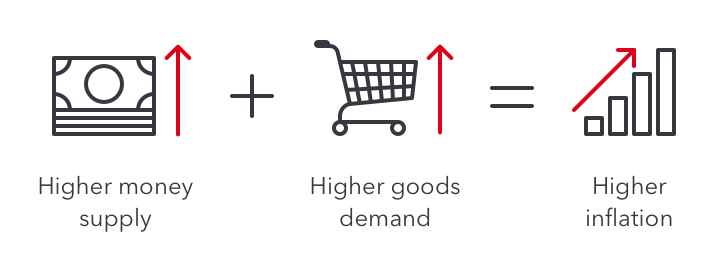Annuities Vs IRA |Advantages and Disadvantages. An IRA (Individual Retirement Account), on the other hand, is a savings account where contributions can grow tax-free until withdrawn at or after retirement age.
Both have their pros and cons, but understanding them is essential if you want to make sure your hard-earned money works for you in the long run!
Tax Advantages
When it comes to retirement savings, two options that are often compared are annuities and IRAs. Both provide tax advantages, but there are some key differences between them when it comes to how they’re taxed.
Imagine this: You’ve just retired after a long career and now have the freedom to do whatever you want with your hard-earned money. You know that having enough saved is essential for a comfortable retirement, so you start looking into annuities and IRAs to find out which one is right for you.
An annuity allows you to save on taxes by deferring them until withdrawals begin in the future, whereas an IRA offers immediate tax breaks such as deductions from current income or the potential exclusion of earnings from taxation altogether.
Annuities also give you more freedom than an IRA because you can choose when payouts will happen and what kind of payout structure will work best for you. Ultimately, whether an annuity or IRA is better for your situation depends on several factors, such as your age, the amount of contributions available each year, and whether or not you need access to cash before retirement. Weighing all these elements carefully can help ensure that you make the most informed decision possible about where to invest your retirement funds.
Annuities Vs IRA |Advantages and Disadvantages
Investment Options
When it comes to investing money, there are two popular options that people commonly use: annuities and IRAs.
Annuities are a type of insurance contract where you pay a lump sum or regular payments over time and then receive regular income when you retire.
An IRA is a personal retirement account that lets you save for retirement and get tax breaks at the same time.
Both annuities and IRAs have their pros and cons depending on the situation, so it’s important to do your research before choosing one or the other.
It’s also essential to consider how much risk you’re willing to take with your investments as well as how long until you plan on retiring.
Ultimately, both are great ways to help secure your financial future if used correctly.

Fees and Costs
I’m trying to weigh the pros and cons of annuities vs. IRAs, so I’m looking into the fees and costs associated with both.
I know annuities have their own fees and costs, such as surrender charges and mortality and expense fees, and I’m wondering if I should factor those into my decision.
I’m also curious about the IRA fees and what other tax implications I should be aware of.
Annuity Fees
When it comes to annuities, you’ve got to watch out for the fees!
Annuity fees can vary greatly depending on the type of product and features you choose.
There are annual administrative costs for managing your account as well as upfront sales charges when you purchase a new policy that can be extremely expensive.
And don’t forget about surrender fees if you decide to cash in early; these could really take a bite out of your funds.
Bottom line: Make sure you fully understand all potential fees associated with an annuity before investing so there aren’t any surprises down the road!
IRA Fees
Now that we’ve gone over annuity fees, let’s talk about IRA fees.
IRAs are a great way to save for retirement and can be an important part of your financial plan. However, there are some costs associated with these accounts that you should be aware of.
Just like annuities, IRAs will have annual administrative costs, and any additional services you choose may come with their own extra charges as well.
Additionally, if you decide to close out your account early, the custodian could charge you a penalty fee or taxes on contributions, depending on the type of IRA held.
So make sure to look into all the details before opening up one of these accounts!
Tax Implications
Well, fees and costs are an important part of understanding your retirement savings plan, but there’s one more thing to consider: tax implications.
Depending on the type of IRA you choose, certain taxes may apply when making contributions or withdrawals.
You’ll also need to keep up with any changes in tax law that could impact your account.
So it’s a good idea to check in regularly and make sure you’re staying up-to-date.
That way, you can be confident that you’re taking advantage of all available tax benefits while still planning for a secure financial future!
Annuities Vs IRA |Advantages and Disadvantages
Liquidity
When deciding between annuities and IRAs, liquidity is an important factor to consider. Annuity contracts are long-term investments that can’t be cashed out without significant penalties for early withdrawal. This makes annuities less liquid than the funds held in an IRA, which you can withdraw whenever you need them.
The tradeoff with taking money from your IRA before retirement age is that you’ll face taxes plus a 10% penalty on any amount taken out prior to age 59 1/2. Both of these options allow for more flexibility when compared to other types of investments, such as stocks or bonds—but if you’re looking for maximum liquidity, an IRA may be your best bet.
It’s important to weigh both the pros and cons carefully so you can make the right decision based on your financial goals and timeline.
Risk Management
When it comes to retirement plans, annuities and IRAs offer two different methods of saving for the future.
Annuities are essentially contracts with an insurance company that guarantee a steady income over time if you make a lump-sum payment up front. This includes understanding the fine print related to fees, costs, and payout terms.
An IRA, on the other hand, is an individual retirement account that allows pre-tax contributions and provides tax benefits when withdrawing funds during retirement. There are potential risks associated with selecting specific investments like stocks or mutual funds, which can result in significant gains or losses depending on performance.
Both have their advantages and disadvantages, but one important factor they both share is risk management.
Risk management is essential in any investment plan as it helps protect against sudden losses or shifts in market conditions.
It’s also important to recognize your own tolerance for risk so you know how much exposure you’re comfortable with and don’t take on more than necessary.
Ultimately, having a sound risk strategy will ensure you stay within your desired level of comfort no matter what kind of retirement plan you choose.
Frequently Asked Questions
Is an annuity or IRA better for long-term retirement planning?
Ah, the age-old question: Is an annuity or IRA better for long-term retirement planning?
I suppose this depends on who you ask.
Some might say that an annuity is a great way to ensure a steady stream of income during your golden years, while others might argue that an IRA offers more flexibility and control over your finances.
So which one should you choose?
Well, it’s up to you!
But if you’re looking to make sure your money lasts through retirement, then both options could be beneficial, depending on what best fits your situation and goals.
How Much Income Can I Expect To Receive From An Annuity Or Ira?
When it comes to long-term retirement planning, one of the biggest questions is how much income you can expect to receive.
With an annuity or IRA, you’ll have different options for calculating your expected payments.
Annuities give you a guaranteed stream of income based on how much you put in and how well your investments do. IRAs, on the other hand, have tax benefits but need more active management to get the most out of them.
Ultimately, both can be great ways to supplement your retirement savings and ensure financial security throughout your later years.
Annuities Vs IRA |Advantages and Disadvantages

What Are The Differences Between A Fixed And Variable Annuity?
Have you ever wondered what the difference between a fixed and variable annuity is? Well, let me fill you in.
A fixed annuity provides consistent payments over a chosen period of time with no market risk, whereas a variable annuity allows you to invest your funds in different markets and accounts for higher potential returns but also carries more risk.
Both have their advantages and disadvantages depending on your individual financial situation, so it’s important to weigh them up before making any decisions.
Does annuity or IRA offer any estate planning benefits Benefits?
When it comes to estate planning, both annuities and IRAs can provide some benefits.
An annuity can be an effective way of supplementing income in retirement, as the money you put into them is not subject to taxes until you start withdrawing from them.
Similarly, by contributing regularly to an IRA throughout your career, you can build a sizable nest egg for later life.
Both of these plans offer tax-deferred growth potential that can help reduce the amount of taxes owed when liquidating assets after death.
Are There Age Or Income Restrictions For Opening An Annuity Or Ira?
When it comes to investing, one of the most important questions is whether there are any age or income restrictions when opening either an annuity or an IRA.
Interestingly, while there may be some minor differences based on the type of account you’re looking into, both typically have no explicit age limit for investors; anyone over the age of 18 can open such accounts.
However, depending on your individual circumstances and goals, different investment vehicles may provide better returns than others.
For example, with traditional IRAs in particular, if you make too much money annually, you won’t be eligible to contribute.
On the other hand, annuities don’t generally come with income limits like this, meaning everyone from low-income households to high earners could take advantage of them!
Conclusion
Planning for retirement can be hard, but it’s important to know the pros and cons of annuities and IRAs.
Annuities offer guaranteed income, while IRAs provide more flexibility when it comes to accessing funds.
Both have their advantages, so you’ll need to decide which one fits your budget and long-term goals best.
When deciding between an annuity and an IRA, ask yourself, What kind of security do I want in my retirement?
Do I prefer steady payments, or am I looking for opportunities to grow my wealth?
Ultimately, the choice is yours—just make sure you’re comfortable with whatever route you choose!











Leave a Reply